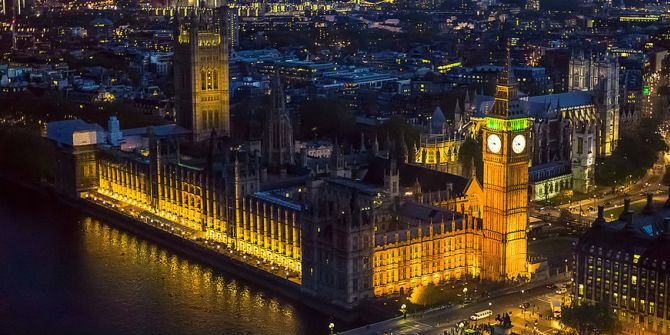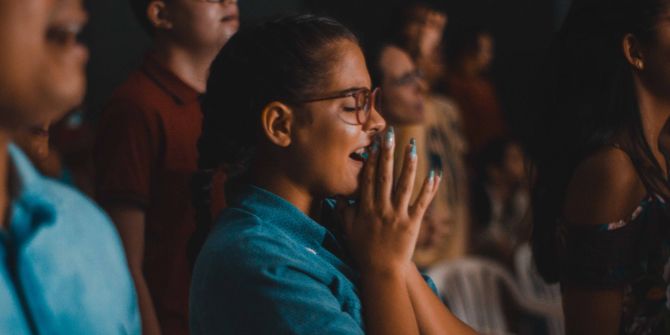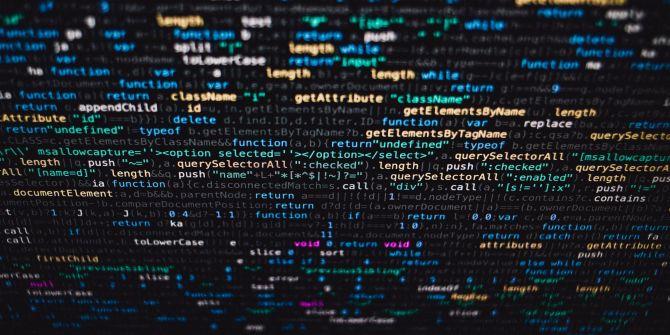The coronavirus pandemic quickly prompted radical policies and drastic behavioural changes, binding individuals, society and public institutions closer together in the pursuit of an effective public health response. Though this solidarity has frayed, Maximillian Afnan sees in our COVID—19 response the possibilities of a reimagined future.

Amid the tragedy of the coronavirus crisis, there is a growing awareness that the current moment is an opportunity for profound reflection on the kind of society that should emerge in its aftermath.
The immense loss of life, the speed with which seemingly permanent aspects of social life have been upended, and, in recent months, the surge in public consciousness of the effects of systemic racial injustice are all prompting a re-evaluation of prevalent modes of thought. As a result, conversations around issues of racial and social inequality have been renewed, and questions surrounding issues such as environmental stewardship and the future of the economy have been cast in a new light. In fuelling these conversations, the global crisis is demonstrating that a society’s strength is dependent on its ability to engage in united, collective action, highlighting how urgently humanity requires systems of governance that reflect this underlying fact.
The early part of the coronavirus pandemic in particular recast relationships between political institutions, communities, and individuals with extraordinary speed. Governments took steps to intervene in the economic lives of their populations that would have been unthinkable only a few months ago. Communities of all kinds arose to offer help to vulnerable members and maintain a spirit of solidarity in trying circumstances, often collaborating across cultural and faith boundaries to do so, especially at the local level. Hundreds of millions of individuals accepted drastic restrictions on their activities and movements for the sake of mitigating the virus’s spread, while tens of millions among them braved – and continue to brave – illness or worse for the sake of serving others. Each of these social agents – institutions, communities and individuals – has played a part in the response to the virus, unique to their particular characteristics.
Beyond demonstrating the indispensability of each of these three social protagonists, the crisis is an opportunity to rethink the adversarialism that often characterises relationships among them. Over the past few hundred years, in response to patterns of stifling religious orthodoxy and political authoritarianism, a political culture has developed, particularly in Western societies, which views institutional authority as a threat to individual liberty. The continued experience of the improper use of state power – under totalitarian regimes, and, as recent weeks have highlighted, in so-called ‘free societies’ – has consolidated the assumption that harmonious, constructive relations between individuals and social institutions are unfeasible.
Prevalent thought regarding the relationship between the individual and the community often displays a similar tendency towards an assumption of adversarialism. On the one hand, there are many examples of overbearing social norms and communal structures demanding loyalty and conformity from individual members. On the other hand, concerns about encroachment on individual autonomy have given rise in some quarters to the view that a thick fabric of community life may be unimportant – or even an obstruction – to individual flourishing.
However, current conditions are a reminder that relationships between these three actors need not be constrained by the terms of a conversation from centuries ago, and that a re-examination may be in order to refine their patterns of interaction in a world in which their interdependence is so clear.
For one thing, the crisis is demonstrating just how much each of these social agents – the individual, the community, and the institution – is dependent on the others for cooperation. To give only a few examples, social distancing restrictions would be unenforceable and thus useless were it not for the support of a significant majority of the population, while without governments stepping in to provide economic relief the social cost of the virus would almost certainly have been much greater than it has been so far. Similarly, the efforts of governments to channel resources, and of individuals to give their time, to address situations of vulnerability or isolation have relied on the local knowledge and deeply-rooted networks that communities possess. Further, this cooperation has required a certain level of trust between each protagonist – trust, for example, in institutions to provide accurate information, and in individuals to make voluntary behavioural changes despite their immediate personal interests.
What the global crisis has done, then, is make the fact of interdependence among citizens, communal networks and governing institutions very tangible, and suggested that more constructive patterns of interaction among them are possible. The same principles can be applied to problems as diverse as climate change, mental health, and social prejudice. On each of these issues, it is increasingly clear that approaches which pick out only one protagonist as the sole bearer of responsibility, or agent capable of effecting change, are unable to address the entirety of the problem.
Moreover, the experience of the current crisis suggests that instead of internalising the assumption that, say, individuals should always view their governments with suspicion, it can be productive to identify ways in which political institutions function as valuable providers of information and resources. Instead of assuming that their only effective tool is the exercise of coercive power, institutions can seek to identify and nurture the conditions under which individuals can be motivated by altruism and concern for others. And instead of, say, seeing community ties as constrictive of freedom, one can seek to identify instances in which they constitute an environment which empowers individuals and channels their energies constructively.
There are, of course, many reasons for why the prevailing political culture takes the form that it does. Recent months have demonstrated clearly how states can both provide unprecedented levels of economic and social relief to individuals, and simultaneously perpetuate patterns of discrimination against minority citizens. To suggest that relationships between these three social actors need not be adversarial does not mean that a fully-formed alternative is readily available, nor is it to deny that cooperation between them is only possible when certain preconditions are met. But the present crisis suggests that it is at least worth asking the question of what new forms of interaction between citizens, communities, and political institutions are required to serve the needs of highly complex, interdependent societies.
Note: This piece gives the views of the author(s), and not the position of the LSE Religion and Global Society blog, nor of the London School of Economics.





